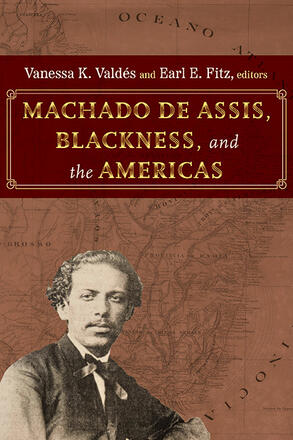
Machado de Assis, Blackness, and the Americas
Alternative formats available from:
Examines the reception of Brazil’s most-canonized writer in the United States to shed light on questions of Blackness and hemispheric American experience.
Description
Considered a genius in his own lifetime, Joaquim Maria Machado de Assis (1839–1908) is Brazil's most canonized writer. Yet, he remains a contested and even enigmatic figure to readers in Brazil and abroad, his relative silence on slavery leaving him vulnerable to charges of aspirations to whiteness. Machado de Assis, Blackness, and the Americas reconsiders this issue by exploring how his prose fiction has been received in the United States. In seven original essays, contributors re-examine his novels and short stories, as well as photographs of the writer, in order to better understand the strategies he employed to navigate Brazil's literary scene as a man of African descent. Framed by a contextualizing introduction and an afterword in the form of a conversation between the editors, the volume speaks to and with our own historical moment and the realities of Black lives in the Americas over the course of the last two centuries.
Vanessa K. Valdés is an independent writer, scholar, speaker, and curator. Her books include Let Spirit Speak! Cultural Journeys through the African Diaspora, Oshun’s Daughters: The Search for Womanhood in the Americas, Diasporic Blackness: The Life and Times of Arturo Alfonso Schomburg, and Racialized Visions: Haiti and the Hispanic Caribbean, all published by SUNY Press. Earl E. Fitz is Professor of Portuguese, Spanish, and Comparative Literature at Vanderbilt University. He is the author of The Literatures of Spanish America and Brazil and Machado de Assis and Narrative Theory: Language, Imitation, Art, and Verisimilitude in the Last Six Novels, among many other books.b>
Reviews
"This book asks not what Machadian Blackness is, but, more importantly, what does it do? How does the author’s racial identity open the text and his biography to new debates and discoveries? What are critics to do when an author does not perform his identity in the way he is expected to? Comparisons to Harriet Beecher Stowe, Toni Morrison, Milton Hatoum, and Jeferson Tenório show how an inter-American approach to Machado—one that focuses on how his marginalization influenced his aesthetics, point of view, and characterization—has relevance far beyond understanding this single author." — John T. Maddox IV, author of Fractal Families in New Millennium Narrative by Afro-Puerto Rican Women